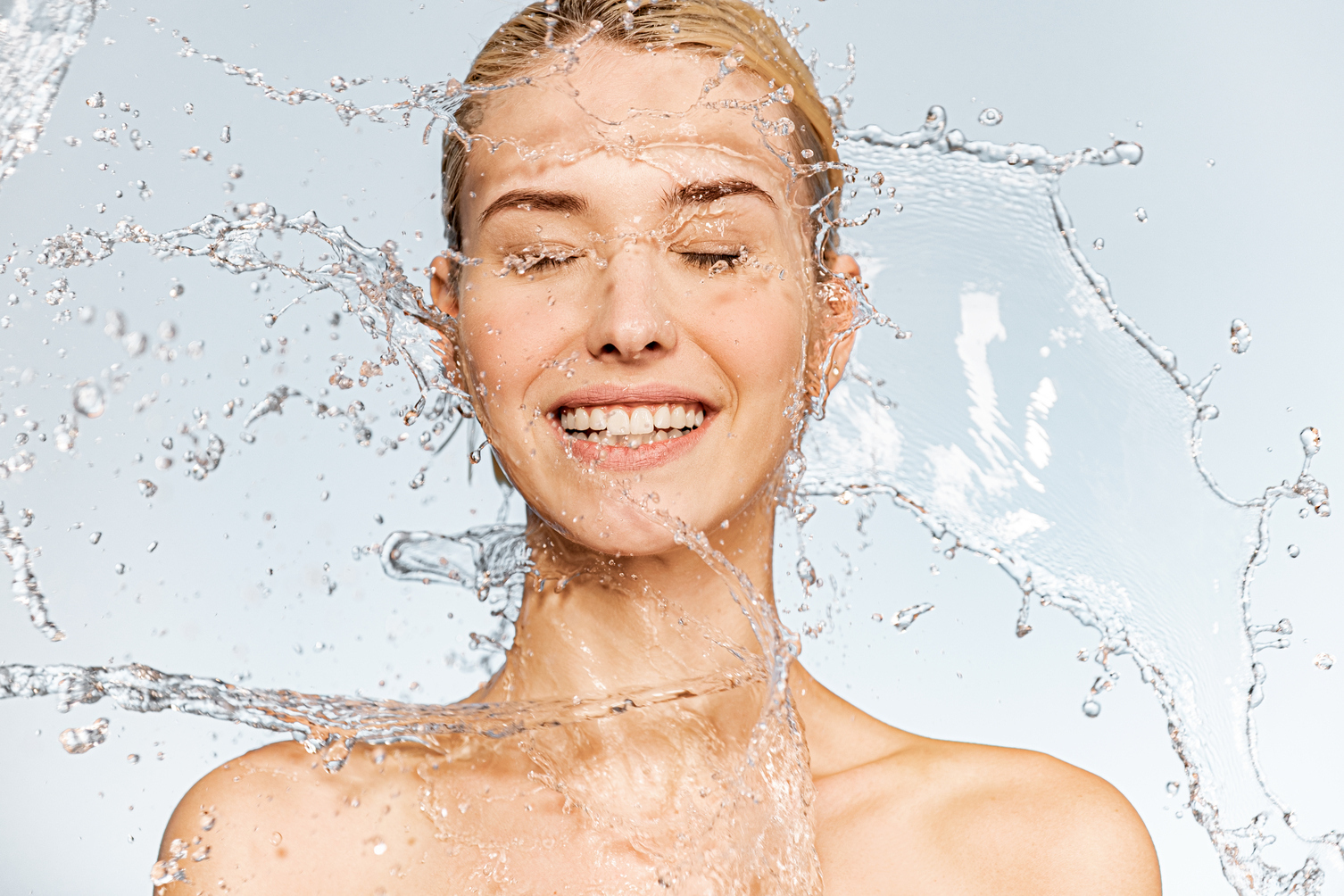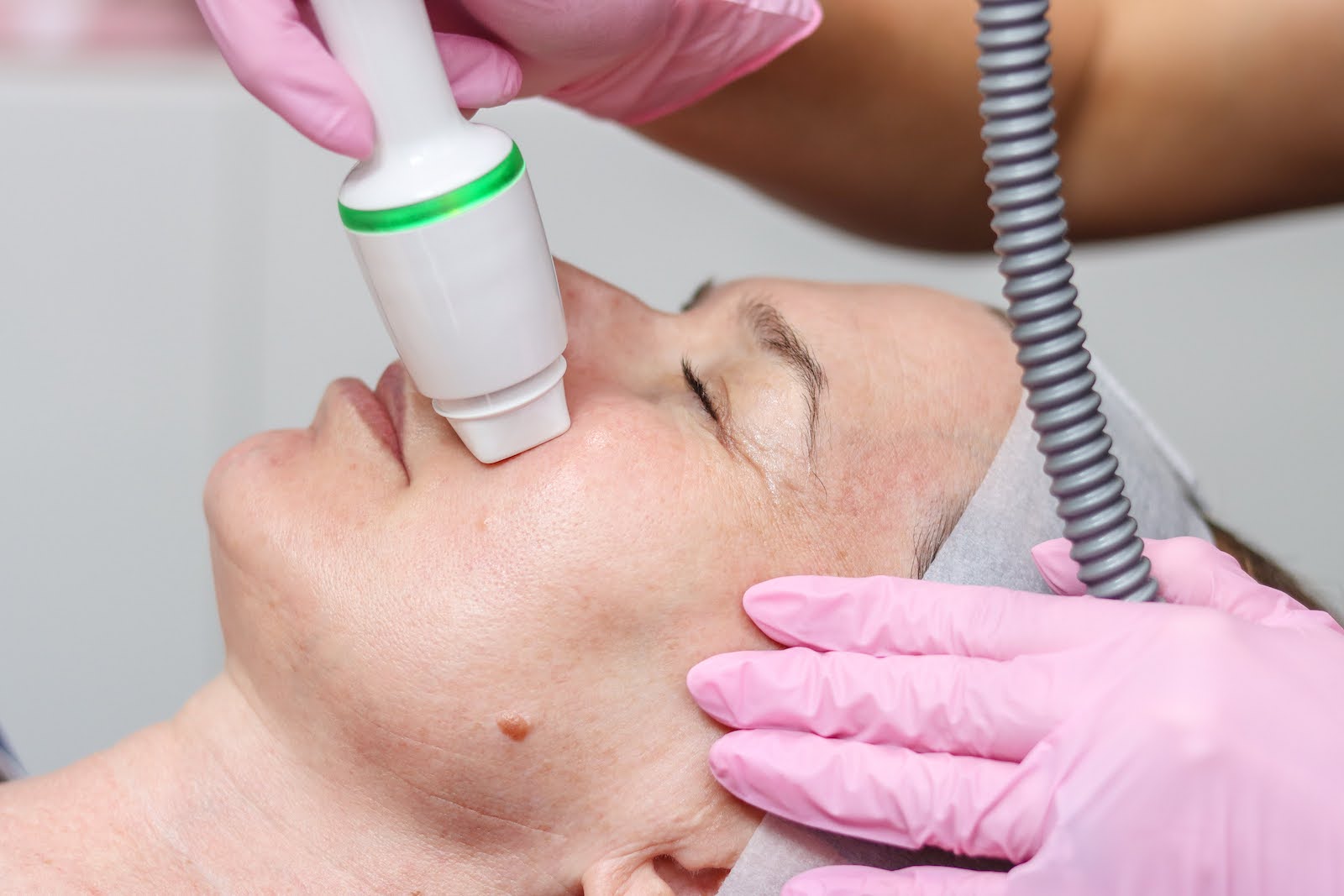How Does Water Help Skin? The Skincare Secret to NEVER Ignore
How Does Water Help Skin? The Skincare Secret to NEVER Ignore

Achieving clear, radiant, and ageless skin can be super difficult. Want to know what makes it even harder? Write this one down: De. Hy. Dray. Tion.
Yes, dehydrated skin can totally impact not only how you look but also the effectiveness of your aesthetic procedures. At Spa in the City, we always tell our clients to never forgo the H2O. Especially in the Dallas heat, it’s vital to make sure you’re hydrated on the inside so you can flourish on the outside. So how does water help skin? Let’s explore.
Why your body absolutely loves water
It’s no secret that we need water to survive. But other than giving that “ah moment” of relief after a refreshing, cold sip, what does water actually do for the body?
Long story short? Water does a whole lot.
Water makes up to 60% of an adult human body, but that’s just the body as a whole. Let’s break that down even further:
- Brain & heart: ~73% water
- Lungs: ~83% water
- Muscles & kidney: ~79% water
- Skin: ~64% water
Yes, even your skin has a lot of water, which is exactly why you should drink enough each day to keep it soft and supple. Remember, dehydrated skin = faster aging skin (we’ll talk about this more in the next section).
Beyond hydration, water consumption also:
- Helps builds cells
- Regulates body temperature
- Transports carbs and proteins through the bloodstream
- Creates saliva
- Acts as a crucial component to lubricate joints
At the end of the day, when you drink enough water, not only does your skin love you, your entire body will thank you! Of course, we’re not going to stop there. Let’s go into more specifics about how water keeps you looking younger for much longer.
Moisturization vs. hydration in skin care
When talking about how water helps skin, it’s important to know the difference between hydration and moisturization. In many cases, you may hear the words interchangeably, which isn’t necessarily a bad thing. However, we’re all about specifics here, and if you want to know exactly why you should drink water for fantastic skin, the nuances definitely matter.
What is moisturization?
Moisturization refers to sealing in water from hydrating products. For example, if your skin is super dry from lack of oil production, then you would need moisturizing products to lock everything in. Facial oils, ceramides, glycerin, and omega-fatty acids are a great way to moisturize dry skin.
Keep in mind that people with dry, flaky, or patchy skin don’t necessarily have issues due to the lack of water consumption. In many cases, it can stem from genetics, climate, harsh products, and other environmental factors.
What is hydration?
Hydration, on the other hand, refers to nourishing your skin with enough water to keep it plump and radiant. Simply speaking, dehydration means there isn’t enough water for your skin to hold on to. When your skin is dehydrated, that’s how dullness, fine lines, and aging can really start to vamp up. While there are products that can help such as hyaluronic acid, drinking water and skipping out on sodas and alcohol could make a huge difference.
How do I know whether my skin is dehydrated or needs moisture?
Understanding whether your skin is dehydrated or needs help with moisture retention can be difficult. Both dehydrated and dry skin can appear the same, but they won’t necessarily benefit from the same solutions.
Dehydrated skin may be tight and parched, but you may be surprised to find it still producing lots of oil. This often occurs because the skin mistakes dehydration for dryness and compensates by boosting oil production. Instead of fixing the problem, it may only lead to a greasy-feeling layer over rough skin.
When your skin needs moisture, it usually won’t be able to produce enough oil to create that oily yet dry feeling. People with dry skin typically experience flaky and patchy skin that struggles to stay supple and soft.
Remember: dehydrated skin = needs water, dry skin = needs oil.
Why you should drink water for your aesthetic procedures

Since water comes with tons of benefits, it’s no wonder it helps your aesthetic procedures! Why? It’s simple. Healthy, hydrated skin often sees better results.
Let’s talk about healing. In many cases, aesthetic procedures depend on the body’s natural healing process. By creating some kind of damage to skin tissue, these procedures trigger cells called fibroblasts to produce more collagen and elastin fibers.
Collagen and elastin are protein fibers housed in the deep layers of your skin. They are in charge of maintaining your skin’s structure while allowing it to “bounce back” instead of stretching or causing laxity.
However, as time passes, natural aging and sun damage weaken your collagen and elastin framework. To add to that, your body slows the production of the two fibers starting around the age of 22, meaning it’s no longer replenishing the damage.
What does that have to do with water consumption?
Everything! Your cells need water to function, and fibroblasts aren’t excluded. So if you’re not drinking enough water, you’re not giving your body the tools it needs to kickstart collagen production after your treatment.
On the other hand, drink enough water and you’ll reach your #skingoals in no time! That way, your healing and recovery will run smoothly and efficiently so you achieve the look you’re after.
Bonus: RF microneedling and hydrated skin
Radiofrequency (RF) microneedling works great on hydrated skin. Combined with drinking water, RF microneedling can help you reverse signs of aging, treat pigmentation issues, and even help tighten mild skin laxity!
RF microneedling is basically the upgraded version of traditional microneedling. With a traditional treatment, a handheld piece runs along your skin to create tiny micro-wounds. Those micro-wounds jumpstart the body’s natural healing process, leading to a boost in collagen production.
Now, here’s where things get a little more interesting. Radiofrequency (RF) energy enhances the already great benefits of traditional microneedling. How? We’ll explain.
RF energy increases the temperature of skin tissue, which causes thermal damage (it sounds worse than what it is, trust us). Thermal damage then stimulates something called neocollagenesis—in other words, the collagen-making process.
During the treatment, RF energy radiates from the tips of the needles for the ultimate skin rejuvenation session. Plus, with little to no downtime, you may start noticing results within the following few days!
Is RF microneedling right for me?
That depends. If you’re tired of dealing with an uneven complexion, textured skin, wrinkles, and acne scars, then yes, RF microneedling could be your perfect fit! As with any treatment, you’ll want to go in for a consultation to ensure RF microneedling works for your needs, but you’d be surprised by just how many people it can benefit!
While all skin tones and types often do well with RF microneedling, keep in mind that results may not be instantaneous. Most people require a series of treatments to get truly glowing, radiant skin.
People who are suffering from active breakouts (like acne or eczema) should wait until they clear before starting treatments.
If I stay hydrated, can’t I perform microneedling myself at home?
If you’re going to compare it to a professional RF microneedling treatment, honestly… there is no comparison. In this case, it doesn’t matter how much water you drink to achieve optimal results.
Many people opt for cheaper alternatives but expect the same results as a professional treatment. However, you may notice that rollers can enhance topical creams and treatments, but beyond that, they won’t do much else.
While at-home roller devices may help brighten your skin, they can also do more harm than good. One reason is that the needles on a roller penetrate the skin at an angle, which can actually cause tearing and damage if you’re not careful.
But with RF microneedling, the needles are delicately placed to penetrate the skin at the optimal depth. Along with RF energy, this allows the treatment to evenly disperse throughout the treatment area(s). Plus, a professional treatment is a lot more aggressive (in a good way), meaning it is powerful enough to show real results.
Long story short, if you want the best of the best, don’t try microneedling at home.
Learn more about how water helps your skin with Spa in the City
At Spa in the City, we’re dedicated to providing the best, most natural-looking results possible. Our goal is for you to feel better in your skin, not erase your natural beauty. From the moment you step into our Dallas medical spa to the moment you leave, we will provide excellent client care while producing exceptional results. And, as always, we strive to find options that fit into your budget.
Driven by our values—honesty, passion, and client commitment—we combine the highest quality aesthetic treatments with an unforgettable experience. Our unique V.I.P. membership program allows our clients to save money and enjoy exclusive perks on our procedures and products all year long.
Get started today by using our virtual consultation tool or scheduling an appointment.